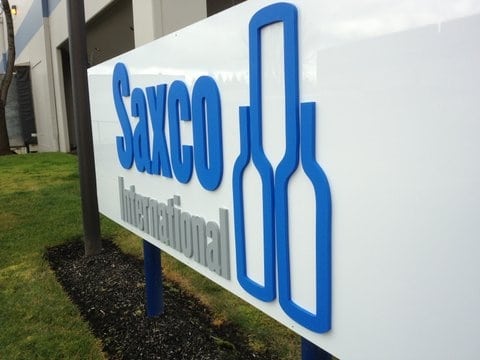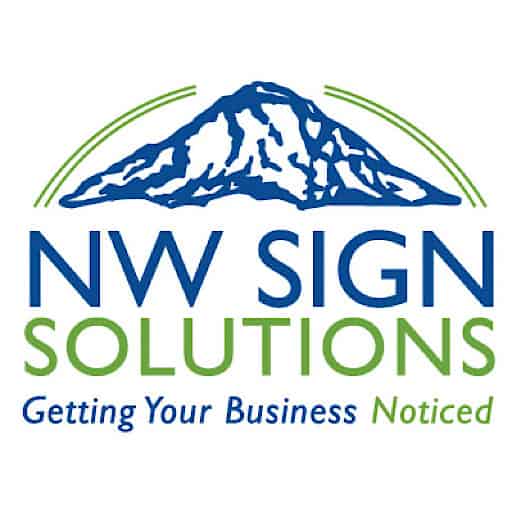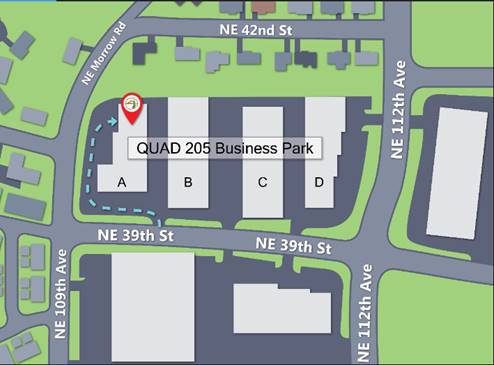Choosing the Right Outdoor Sign Materials for Your Location or Climate
When people spot your business from the street, your sign is the very first impression. It’s like a handshake, an introduction, and a promise all at once.
But here’s the catch: a sign that looks great in one climate might fail miserably in another. A beautiful wood sign can warp in constant rain. A vinyl banner can fade under relentless UV rays. A lightbox might pop in one neighborhood but feel out of place in another.
That’s why choosing the right sign materials matters just as much as the design itself. The materials you choose determine not only the look but also the durability, maintenance costs, and ultimately, how effectively your sign brings people through your door.
In this guide, we’ll walk you through the most common sign materials while comparing their strengths, weaknesses, and ideal use cases. We’ll also give you practical insights into weatherproofing outdoor signs, so your investment keeps working for you year after year.
Why Sign Material Matters
Imagine investing in a bold, modern sign that matches your brand perfectly, only to have it peel, crack, or fade in a matter of months. The right material can mean:
- Longevity: Less frequent replacements and fewer repairs.
- Visibility: Crisp, legible text and vibrant colors that don’t fade.
- Weather resistance: Protection against rain, sun, wind, and temperature swings.
- Brand perception: A professional, polished look that communicates quality.
In short, choosing wisely upfront saves you money and headaches later.
Factors to Consider Before Choosing Materials
Before we break down materials, think about your environment and audience:
- Climate: Does your location see heavy rain, snow, or intense sunlight? Humidity, salt air, and high winds all affect signs differently.
- Placement: Is your sign indoors, under an awning, or fully exposed to the elements?
- Longevity vs. Flexibility: Do you want a permanent installation or something easy to update seasonally?
- Budget: Some materials cost more upfront but save money over time with lower maintenance.
With these basics in mind, let’s look at your options.
Aluminum Signs

Durability: ★★★★★
Best for: Long-lasting outdoor business signs
Aluminum is one of the most popular materials for professional signs—and for good reason. It’s lightweight yet strong, resistant to rust, and highly versatile. Aluminum can be paired with reflective finishes, full-color printing, or protective coatings to stand up to almost any weather.
Strengths:
- Resists rust and corrosion
- Works well with UV-resistant coatings for long-term color retention
- Sleek, modern appearance
- Excellent for weatherproof outdoor signs
Weaknesses:
- More expensive upfront than basic materials like vinyl
- Can dent if struck hard
If your business needs a professional, weatherproof sign that can endure everything from summer heat to winter storms, aluminum is often the safest bet.
Vinyl Signs
Durability: ★★☆☆☆
Best for: Temporary promotions, events, or budget-friendly signage
Vinyl signs are highly versatile and easy to print in full color. They’re common for banners, trade shows, and temporary installations. With proper lamination, vinyl can survive outdoors, but it’s not designed for decades of wear.
Strengths:
- Low cost and fast turnaround
- Great for vivid, colorful graphics
- Lightweight and portable
Weaknesses:
- Vulnerable to UV fading
- Not ideal for permanent outdoor business signs
- Can tear in high winds
Vinyl works best for short-term or seasonal use. If you’re advertising a grand opening or a limited-time promotion, vinyl is perfect. For a permanent storefront sign, though, you’ll want something sturdier.
Acrylic Signs
Durability: ★★★★☆
Best for: Indoor and semi-outdoor business signs
Acrylic (sometimes called plexiglass) offers a polished, modern look. It’s popular for office lobbies, restaurants, and storefronts where style matters. Acrylic signs can be cut into custom shapes, layered for dimension, and combined with lighting for extra impact.
Strengths:
- High-end, glossy finish
- Resistant to moisture
- Excellent clarity and color depth
Weaknesses:
- Can crack or chip if struck
- Not as UV-resistant as aluminum without protective coatings
Acrylic is a great choice if you’re going for a modern, upscale appearance, especially indoors or under cover where weather exposure is limited.
Wood Signs
Durability: ★★★☆☆ (with proper treatment)
Best for: Rustic, artisanal, or historic brands
Wood signs carry an old-world charm that fits perfectly for breweries, boutique shops, or bed-and-breakfasts. They can be carved, painted, or sandblasted for a handcrafted look. But without proper weatherproofing outdoor signs, wood can warp, crack, or rot.
Strengths:
- Natural, warm aesthetic
- Highly customizable with engraving and finishes
- Unique and memorable
Weaknesses:
- High maintenance in wet climates
- Prone to fading and warping without sealants
- Typically heavier and harder to install
Wood signs are beautiful but require ongoing care. If you’re in a rainy or humid climate like the Pacific Northwest, be prepared to reseal your sign regularly.
Lightbox Signs

Durability: ★★★★☆
Best for: Businesses open after dark
Lightbox signs—those glowing panels you see outside restaurants, gyms, and retail shops—offer 24/7 visibility. They’re typically made with aluminum frames and acrylic faces, with internal LED or fluorescent lighting.
Strengths:
- High visibility, even at night
- Long-lasting with LED lighting
- Weather-resistant when properly sealed
Weaknesses:
- Higher upfront cost and energy usage
- Requires electrical installation and occasional maintenance
If your business thrives after sundown, a lightbox sign is one of the best investments you can make.
Neon Signs
Durability: ★★★☆☆
Best for: Bars, restaurants, and brands with a retro vibe
Neon signs create a nostalgic glow that’s hard to replicate. Traditional neon uses glass tubing filled with gas, while newer LED-based “faux neon” options provide a similar look with less upkeep.
Strengths:
- Unique, eye-catching glow
- Strong emotional appeal and brand personality
- Works indoors and outdoors
Weaknesses:
- Fragile glass tubing in traditional neon
- Energy use (though LED neon improves this)
- Higher upfront cost
Neon is ideal for businesses that want to stand out with personality. If durability is a concern, ask about LED neon alternatives that give the same look without the fragility.
Durability Insights: Matching Material to Climate
Choosing the right material depends heavily on your environment. Here’s how some climates affect signs:
- Wet Climates (like the Pacific Northwest): Aluminum and treated wood with proper sealant excel. Vinyl and untreated wood struggle.
- Hot, Sunny Climates: UV-resistant coatings are essential. Aluminum and acrylic with laminates hold up best.
- Cold and Snowy Climates: Lightbox and aluminum signs with proper sealing resist snow and ice. Avoid fragile materials like untreated acrylic.
- Coastal Areas: Salt air corrodes many materials, but aluminum with a protective coating is a reliable choice.
This is where weatherproofing outdoor signs becomes critical. UV laminates, anti-graffiti coatings, and moisture barriers can all extend your sign’s life, no matter the base material.
How to Make a Business Sign That Lasts
When you’re investing in your business, you want your sign to work hard for years to come. Here are some fundamental design and durability tips:
- Clarity first: Keep text short, fonts bold, and colors high-contrast.
- Choose UV-resistant finishes: Prevent fading in sunny climates.
- Seal against moisture: Especially important for wood and acrylic.
- Think about placement: Under awnings, against walls, or elevated for wind resistance.
- Invest in professional installation: A great material won’t perform well if it’s poorly installed.
Let’s Create a Sign That Gets Noticed
Your sign is both a marketing tool and a long-term investment. Whether you choose sleek aluminum, rustic wood, or a glowing lightbox, the right material can make the difference between a sign that fades and one that truly gets noticed.
By considering your climate, budget, and brand personality—and adding the right protective finishes—you’ll create a sign that not only attracts attention but also stands the test of time. At NW Sign Solutions, we help businesses select and design weatherproof outdoor signs that balance beauty with durability. If you’re wondering which option makes sense for your location, our team is here to guide you from idea to installation.




